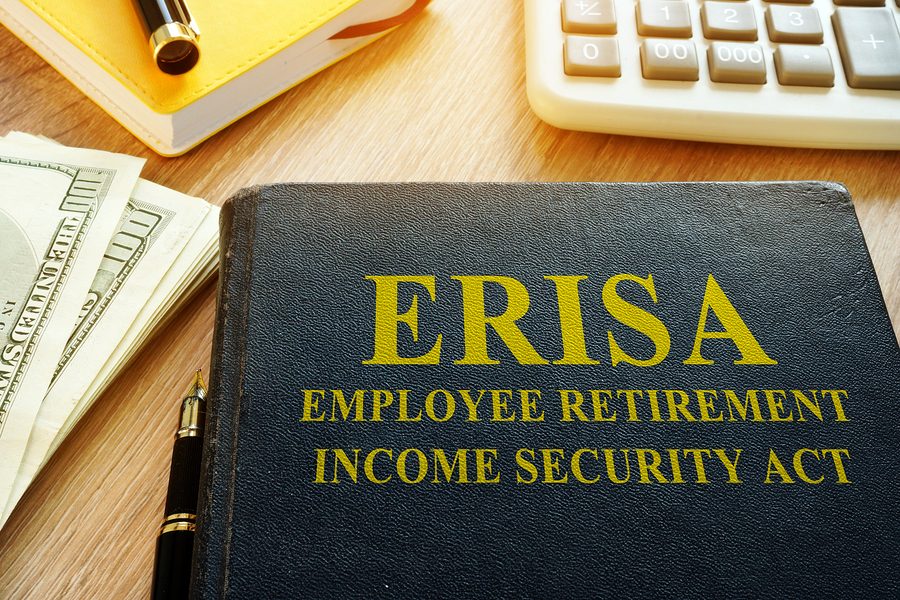Contact Us
Categories
- SCOTUS
- FTC
- Emotional Support Animals
- Service Animals
- Employee Agreement
- Remote Work
- Federal Trade Commission
- LGBTQ
- Minors
- United States Department of Justice ("DOJ")
- Work from Home
- Arbitration
- Workplace health
- Intellectual Property
- Trade Secrets
- Corporate
- Center for Disease Control
- Americans with Disabilities Act ("ADA")
- FFCRA
- Opioid Epidemic
- Occupational Safety and Health Administration (“OSHA”)
- COVID-19
- Families First Coronavirus Response Act
- H.R.6201
- Health Care Law
- IRS
- Paid Sick Leave
- Temporary Leave
- Treasury
- Coronavirus
- Worker Misclassification
- Labor Law
- Overtime
- Kentucky Unemployment Insurance Commission
- Sexual Harassment
- FMLA Retaliation
- Overtime Rule
- Employer Wellness Programs
- Genetic Information Nondiscrimination Act ("GINA")
- Kentucky minimum wage
- Minimum wage
- Wage and Hour
- Employee Benefits
- Employment Discrimination Laws
- Employment Non-Discrimination Act ("ENDA")
- ERISA
- Human Resource Department
- Independent Contractors
- Kentucky Civil Rights Act (“KCRA”)
- OSHA
- Overtime Pay
- Paid Time Off ("PTO")
- Sick Employees
- ADA Amendments Act of 2008 (“ADAAA”)
- Adverse Employment Action
- Amazon
- Americans with Disabilities Act
- Bring Your Own Device
- BYOD
- Civil Rights
- Compliance
- Department of Health and Human Services
- Department of Labor ("DOL")
- EEOC
- Employee Handbook
- Employee Misconduct
- Employment Law
- Fair Labor Standards Act (FLSA)
- Family and Medical Leave Act (“FMLA”)
- National Labor Relations Act (NLRA)
- National Labor Relations Board (NLRB)
- Portal-to-Portal Act of 1947
- Pregnancy Discrimination Act
- Security Screening
- Social Media
- Social Media Policies
- Title VII of the 1964 Civil Rights Act
- U.S. Department of Labor
- U.S. Equal Employment Opportunity Commission (“EEOC”)
- U.S. Supreme Court
- Uncategorized
- Union
- Volunteer
- Young v. UPS
- Creech v. Brown
- Federal contractors
- Kentucky Labor Cabinet’s Occupational Safety and Health Program (KOSH)
- Lane v. Franks
- Micro-unit
- Security Checks
- Specialty Healthcare & Rehabilitation Center of Mobile
- "Ban-the-box"
- Bullying
- Citizens United v. Federal Election Commission
- Cloud
- Compensatory time off
- Conestoga Woods Specialties v. Sebelius
- Crystalline Silica
- Davis-Bacon and Related Acts
- Drug-Free Workplaces
- EEOC v. Hill Country Farms
- Equal Employment Opportunity Commission v. Kaplan Higher Education Corp.
- Illness and Injury Reports
- Job applications
- Kentucky Department of Workers’ Claims
- Kentucky Wage and Hour Act
- McNamara O’Hara Service Contract Act
- Mine Safety and Health Administration ("MSHA")
- NFL Bullying Scandal
- Non-exempt employees
- Northwestern
- Permissible Exposure Level ("PEL")
- Sebelius v. Hobby Lobby Stores
- Senate Bill 157
- Shazor v. Prof’l Transit Mgmt.
- Violence
- Web Content Accessibility Guidelines
- Whistleblower
- WorkSmart Kentucky
- 2013)
- At-will employment
- Berrier v. Bizer
- Chapter 11 Bankruptcy
- Chenzira v. Cincinnati Children’s Hospital Medical Center
- COBRA
- Companionship services
- Consumer Credit Protection Act (“CCPA”)
- Defamation
- Defense of Marriage Act (“DOMA”)
- Earnings
- EEOC v. Fabricut
- EEOC v. The Founders Pavilion
- Ehling v. Monmouth-Ocean Hospital Service Corp.
- Employee Hazards
- Employee of the Month Programs
- Employee Training
- Employer Group Health Plans
- Endorsements
- Federal Stored Communications Act (“SCA”)
- Federal Workplace Agencies
- Freedom of Speech
- Giant Food LLC
- Government employees
- Government shutdown
- Health-Contingent Wellness Programs
- HIPAA
- Home Health Care Workers
- Jury duty
- KYSHRM 2013
- Madry v. Gibraltar National Corporation
- Mandatory vaccination policies
- Maternity Leave
- Medical Exams
- Megivern v. Glacier Hills Incorporated
- Motivating Factor
- Obesity
- Online Account Protection
- Online Defamation
- Participatory Wellness Programs
- Payroll
- Pennington v. Wagner’s Pharmacy
- Pension Plans
- Private employers
- Reference checks
- Sequester
- SHRM
- Small Business Administration (SBA)
- Social Media Ownership
- Supervisor
- Tangible employment actions
- Title VII retaliation cases
- Troyer v. T.John.E Productions
- Unfair Labor Practice
- United States v. Windsor
- University of Texas Southwestern Medical Center v. Nassar
- Vance v. Ball State University
- Wage garnishment
- Contraceptive Mandate
- Employee Arrests
- Employee Forms
- Employee photographs
- Employer Mandate
- Employment Practices Liability Insurance
- FICA
- Form I-9
- Gatto v. United Airlines and allied Aviation Services
- House Labor and Industry Committee
- Job Description
- Job Requirement
- Kentucky’s Whistleblower Act
- KRS 391.170
- Litigation
- Municipal Liability
- Patient Protection and Affordable Care Act
- Play or Pay
- Posting Requirements
- Public Sector Liability
- Record Retention
- Religious Employer
- Right to Work Bill
- Severance Pay
- Social Privacy Laws
- Strategic Enforcement Plan (SEP)
- Supplemental Unemployment Compensation Benefits
- Tax Refund
- Telecommuting
- U.S. Citizenship and Immigration Services
- United States v. Quality Stores
- White v. Baptist Memorial Health Care Corp.
- Wilson v. City of Central City
- Workplace Politics
- Class Action Waivers
- Criminal Background Checks
- Crisis Management
- Employee Performance Reviews
- Employee Personnel Files
- Federal Arbitration Act (FAA)
- Federal Department of Labor
- Hiring and Firing
- Hosanna-Tabor Opinion
- Informal Discussion Letter (“EEOC Letter”)
- Kentucky Labor Cabinet
- Labor and Pensions ("HELP")
- National Labor Relations Act
- PhoneDog v. Kravitz
- Retaliation by Association
- Salary Threshold
- Social Networking Online Protection Act (SNOP)
- Unemployment Benefits
- Workplace Discrimination, Harassment and Retaliation
- Business Insurance
- Communications Decency Act
- Employee Contracts
- Insurance Coverage
- Internet & Media Law
- Internet Defamation
- Non-Compete Agreement
- Uniformed Services Employment and Reemployment Rights Act
- USERRA
ALERT: NEW E-DELIVERY RULES FOR ERISA PENSION PLANS ON THE HORIZON
In October, the U.S. Department of Labor (DOL) published a proposed rule that encourages electronic delivery of ERISA-required plan disclosures. It allows plan administrators to post disclosures online to cut costs of paper delivery and is a voluntary safe harbor that plans can use to make documents accessible on a website instead of mailing paper documents.

Adopting a so-called “notice and access” e-delivery structure, the DOL allows plans to save paper by emailing disclosures. The rule potentially would cover all ERISA required disclosures (i.e., Summary Plan Description, benefit statements, investment information) as long as the plan uses the proper email address of a participant. Disclosures can be made this way to beneficiaries and ex-employees as well. The proposed rule applies to ERISA pension plans, like profit sharing, 401(k) and money purchase plans, but does not apply to ERISA welfare plans like health, disability, life insurance and dental programs.
Generally, a plan will meet its ERISA disclosure obligation if it gives proper email notice followed by posting the disclosure document on a website. This is referred to under the proposed rules as the notice of internet availability. The proposed rule contains specific content requirements, so it is important to contact competent ERISA counsel for details. This e-delivery approach will be most welcomed by plans that continue to make paper delivery of voluminous plan disclosures; however, the requirement to make paper copies available upon request remains.
The new rule would act as a safe harbor to protect the plan and employer sponsor from liability. Keep in mind it is not required. This new proposed rule will be an addition to the DOL’s existing safe harbor rules of electronic disclosures.
The DOL often attempts to provide clear instruction to plan sponsors in its regulatory pronouncements, and in this proposed rule, the DOL makes it a safe harbor condition that disclosures be written in a manner calculated to be understood by the average plan participant. To that end, a plan may satisfy the “understandability standard” if disclosures use short sentences without double negatives, everyday words in place of technical and legal terminology, and active voice. Hence, if you follow the proposed rule, it is not the case that you will not comply with ERISA disclosure rules.
The public comment period for the new rule ended November 22, 2019, and it will become effective upon publication by the DOL as a final regulation.
 Alan D. Pauw is a Member of McBrayer PLLC and practices out of the firm’s Louisville office. His practice focuses on healthcare, employee benefit matters, estate planning, and general business and tax matters. Mr. Pauw can be reached at apauw@mcbrayerfirm.com or (502) 327-5400, ext. 2350.
Alan D. Pauw is a Member of McBrayer PLLC and practices out of the firm’s Louisville office. His practice focuses on healthcare, employee benefit matters, estate planning, and general business and tax matters. Mr. Pauw can be reached at apauw@mcbrayerfirm.com or (502) 327-5400, ext. 2350.
Services may be performed by others.
This is a summary of state and federal law and regulation and does not constitute legal advice.

